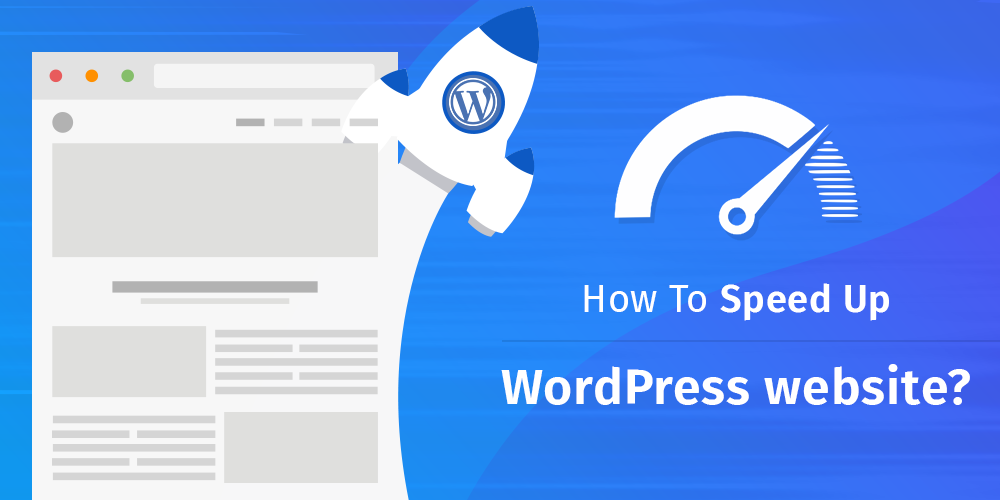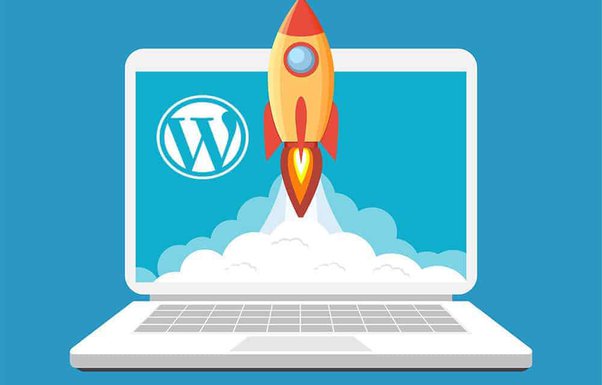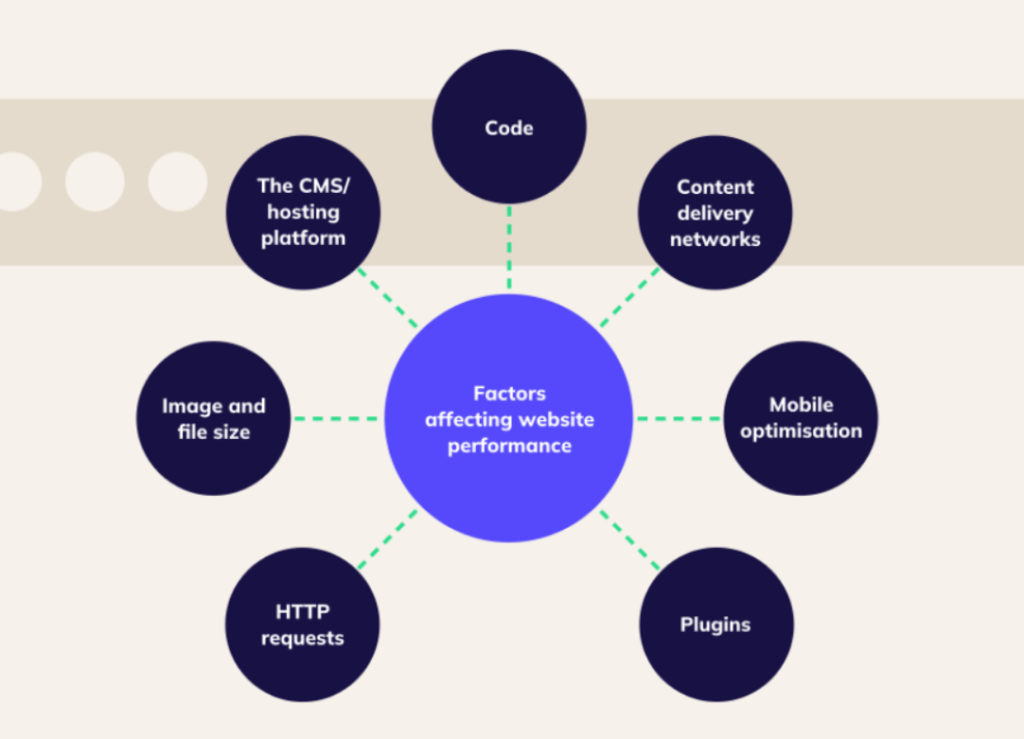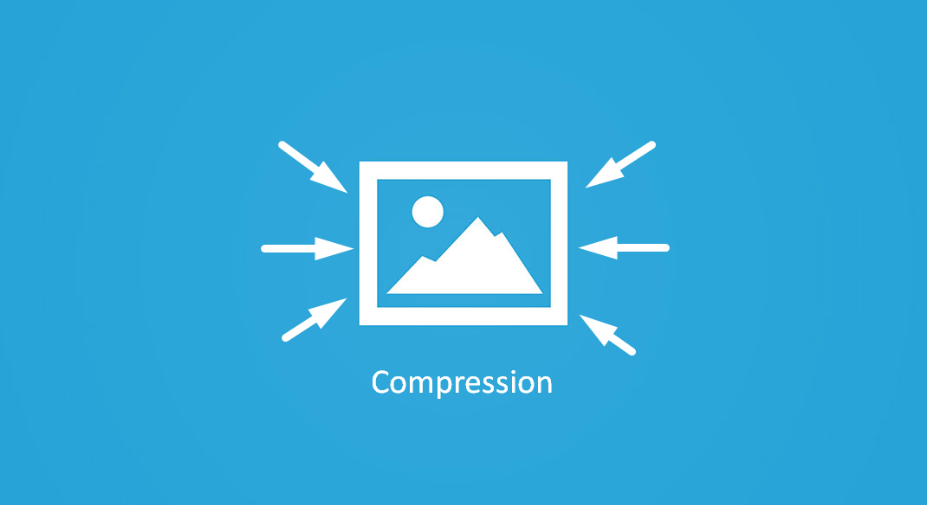
Intro:- How to Increase Website Speed WordPress? Why is it important to improve the page speed? Page speed is also important to user experience. Pages with a longer load time tend to have higher bounce rates and lower average time on page. Longer load times have also been shown to negatively affect conversions.
What is the main concept of speed? Speed is defined as. The rate of change of position of an object in any direction. Speed is measured as the ratio of distance to the time in which the distance was covered. Speed is a scalar quantity as it has only direction and no magnitude.

Web performance refers to the speed at which web pages are downloaded and displayed on the user’s web browser. Web performance optimization or website optimization is the field of knowledge about increasing web performance.
About:- Website speed, or website performance, refers to how quickly a browser is able to load fully functional webpages from a given site. Poorly performing sites that render slowly in a browser can drive users away. Conversely, sites that load quickly will typically receive more traffic and have better conversion rates.
What is a good speed for the website? Research recommends that your website provide visual content within 2 seconds of the user trying to access the site. If possible, the site should be interactive within 5 seconds.
How to Increase Website Speed WordPress? If you are reading this article that means you want to know about how to increase website speed, right? But, you don’t have any idea how or where to know. If you are looking for an easy guide to how to increase website speed then you are at the right place. Just you have to read this article properly. In this article, I will share the proper guide on how to increase website speed. Even if you are a beginner is no worry about it. The steps below are for both Beginners & Experts.
But before beginning to start an article, there are some major points that you should know, like(FAQs)
- How can I increase my website speed?
- Why is my WordPress website so slow?
- What affects WordPress site speed?
- How can I speed up my WordPress site with the free plugin?
- What is the best plugin to speed up a WordPress site?
- What is the best WordPress speed plugin?
- What factors affect website speed?
- Which theme is the fastest in WordPress?
- Do plugins affect site speed?
Let's Find Out. ...
1. How can I increase my website speed?
Guidelines to speed up your website
- Use a Content Delivery Network (CDN) …
- Move your website to a better host. …
- Optimize the size of images on your website. …
- Reduce the number of plugins. …
- Minimize the number of JavaScript and CSS files. …
- Use website caching. …
- Implement Gzip Compression. …
- Database optimization in CMS.
2. Why is my WordPress website so slow?
The big factors that can make WordPress slow
Using unoptimized plugins. Not implementing general performance best practices, like compression and caching. Having too many scripts running in the background. Using an old version of PHP.
3. What affects WordPress site speed?
Page Size – Mainly images that aren’t optimized for the web. Bad Plugins – If you’re using a poorly coded plugin, then it can significantly slow down your website. External scripts – External scripts such as ads, font loaders, etc can also have a huge impact on your website performance.
4. How can I speed up my WordPress site with the free plugin?
What Plugins Can Make My WordPress Load Faster?
- WP Super Cache: Faster Rendering. …
- W3 Total Cache: Faster Rendering. …
- WP Super Minify: Compressing JavaScript & CSS Files. …
- WP Smush: Reducing Image Size. …
- BJ Lazy load: Decreasing Pageload. …
- WP- Optimize: Optimizing the Database. …
- Autoptimize: Script Optimization.
5. What is the best Plugin to Speed up a WordPress site?
Best WordPress Cache Plugins
- WP Rocket.
- WP Fastest Cache.
- LiteSpeed Cache.
- WP-Optimize.
- W3 Total Cache.
- WP Super Cache.
- Hummingbird.
- WP Rocket.
6. What is the best WordPress speed plugin?
Last updated on January 3rd, 2023 by Editorial Staff | Reader Disclosure. …
That being said, let’s take a look at the best WordPress caching plugins that you can use to boost your website speed.
- WP Rocket. …
- WP Super Cache. …
- W3 Total Cache. …
- Sucuri Firewall. …
- Built-in Cache Plugins from Hosting.
7. What factors affect website speed?

Here are the main factors that can affect site speed and our recommendation for optimizing them.
- Code. Superfluous code. …
- The CMS/ hosting platform. …
- Image and file size. …
- HTTP requests. …
- Browser caching. …
- Content delivery networks. …
- Mobile optimization. …
- Use plugins sparingly.
8. Which theme is the fastest in WordPress?
Let’s get started with a detailed comparison of the fastest WordPress themes.
- Astra.
- Sydney.
- OceanWp.
- Page Builder Framework.
- Neve.
- GeneratePress.
- Schema.
- Hestia.
9. Do plugins affect the site speed?
Since plugins take up a lot of your server’s processing power, they end up having a direct impact on your website speed and load-times.
Let's Explore That. ...
How to increase website speed?
Video Tutorial!
Tips on How to Boost WordPress Speed & Performance
Disappointed with the speed test result of your website? Nothing to worry about, you can always do speed optimization to get it up to score your desired performance result. But how to improve WordPress site speed? Here are “n” ways you can speed up your WordPress website speed:
1. Choose a Faster Server:
By faster server, I mean preferably a dedicated server. In the beginning, it was very common for people to go for shared hosting as it comes cheap. However, with time once you get popular and get a good amount of traffic to your website, it’s always a better idea to move to dedicated hosting.
Since shared hosting and all the resources are being shared among multiple websites, it has an unavoidable bad effect on your website’s performance. Especially most shared web hosting fails to provide 99 percent uptime and in peak hours website loading speed is not satisfactory.
So I would suggest if you can afford it, you should switch to a dedicated server for your WordPress hosting that receives a good amount of traffic on a monthly basis.
Note: Also, make sure to choose a server that is located close to the from where you receive the most number of website visitors. Because the location of your server also plays a significant role in your website’s speed because of various factors such as Network Latency, TTFB(time to the first byte), etc. How to Increase Website Speed WordPress?
2. Choose a Lightweight and Fast Theme
A website is a visual form of marketing your product and service and it’s only natural to be tempted to go for a plugin that has too many animations and functionality. However, if too much animation and additional functions make your site slow then it is really of no use.
I am not saying go for a bland website, but make sure loading speed is on your checklist when you choose your WordPress theme. You need to find the right balance between what functionality and animation you want in your website and the loading speed.
3. Optimize the image, media, and database of your WordPress website
With time your website turns into a storehouse of unused images, and media that can increase your website size and thus affect the site’s loading speed. The same goes for databases as well. If not optimized database stores unnecessary information which results in bad WordPress site speed.
So, do check if your website is filled with redundant images and media files or not. And if so, do clean them up. Also, it’s always a good idea to optimize your images before uploading. A reduced media size like an optimized image and database size will reduce your website speed as well.
4. Disable pingbacks and trackbacks
Pingbacks and Trackbacks are great to find out when one of your blogs or web page receives a link. While these are great but you need to know that these links can put an unwanted strain on your server. Besides, if you turn these two features on you are always at risk of getting DDoS attacks. So, for WordPress speed optimization and securing your site from DDoS attacks make sure to disable pingbacks and trackbacks. You can disable these easily from the WordPress admin dashboard. How to Increase Website Speed WordPress?
5. Uninstall unused plugins and themes
If you are not currently using plugins or themes then it’s absolutely unnecessary to keep those files on your server. The bigger the size of your website, the slower it is likely to load. So, uninstall any WordPress plugins and WordPress themes you don’t use. Along with uninstalling you also need to keep an eye if your themes and plugins have updates available or not. If so, then make sure you update them.
6. Compress Media Files
Uploading very large images and videos will significantly slow your WordPress site down. For that reason, another solution to speed up a WordPress site is to compress your media files.

There’s a free plugin for WordPress that can automatically reduce all your image dimensions, so there’s no need to do this repeatedly for each picture.
7. Check if the Website and the Database are in the Same Data Center
Check if your Site and the database are located in the same data center. Proximity is always important when talking about hosting and servers. Having the website and its database in the same data center makes the process of fetching posts and working with the database easier and smoother, thus optimizing website performance. To find out the location of your server, ask your hosting providers. Sometimes, companies show their server locations during the signup process too. How to Increase Website Speed WordPress?
8. Optimize Your WordPress site's Homepage
Another thing you can do to speed up your site is to optimize your homepage. Make it look simpler, without clustered content and useless widgets or tools. Also, don’t show the posts at their full length. You can show only the first paragraph or a specific excerpt from the text. Displaying too many posts on the same page could also cause a longer loading time.
9. Update Update Update
Keep your Site updated at all times. Whether it is a plugin or a theme, keep in mind that they should always stay up to date for maximum performance and security. Or, if you want to remove the hassle of detecting, testing, and deploying updates yourself, you can go for an automated approach. This would entail getting a third-party plugin installed or an even easier approach would be utilizing the in-built system for automatic updates of your hosting provider if they have one.
10. Think mobile-first
Video Tutorial!
As Google mainly uses the mobile version of websites in its rankings, it’s vital to think mobile-first when it comes to designing and optimizing your site’s speed. The easiest way to ensure fast mobile loading is with a responsive WordPress theme. This will ensure your site is adapted and displayed in the best possible way on smaller screens.
11. Delete Unused Plugins and Themes
Aside from the fact that you should always keep your plugins and themes up to date, deleting unused ones is the next step to a speedy site. Not only do unused plugins and themes present security vulnerabilities, but they can also detract from WordPress website performance. To delete the unused plugin, you’ll first need to deactivate it. Then you can go to your inactive plugins list and delete the ones you no longer want. How to Increase Website Speed WordPress?
12. Limit Comments Per Page
While it’s awesome to get so much attention on your blog posts, a ton of comments can also slow page load time down. Breaking the comment section into pages is a good idea to shave off the time it takes for them to load. To limit the number of comments that appear per page, simply go to Settings > Discussion and check the “Break” comments into pages” box. You can then select the number of comments per page (the default is set to 50). They should help improve memory consumption and boost page load times for posts and pages with tons of comments.
- If you got this article helpful leave a comment below in the comment box. I will try to help you. And Thanks for reading the Article!

Authored By The Er. Pramod Adhikari!
The Blogger, Author & CEO’s The Infinity Company! B.Tech in CSE ( Computer Science & Engineering) From Sambhram College, Bengaluru-560097, Working Worldwide as Software(Web/App) Developer!
